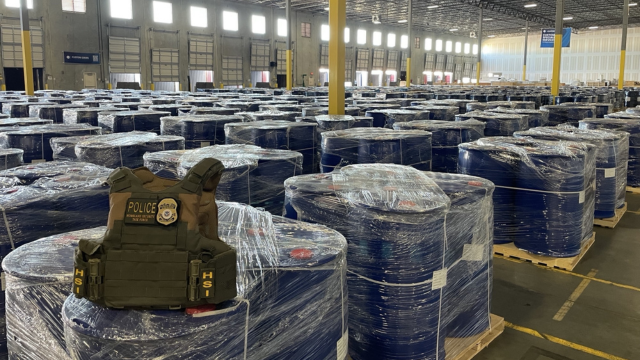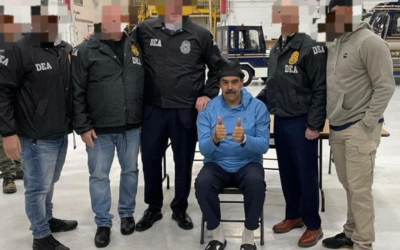One of the largest anti-drug operations in U.S. history raises disturbing questions about Beijing’s complicity with international organized crime.
by Massimo Introvigne

In a world where luxury is often defined by discretion, the latest revelation from the U.S. Homeland Security reads less like a crime blotter and more like a geopolitical thriller with couture-level stakes. This September, federal agents seized an astonishing 300,000 kilograms of methamphetamine precursor chemicals at the Port of Houston—an operation described as the largest of its kind in U.S. history. The chemicals, shipped from China and bound for Mexico’s infamous Sinaloa Cartel, were enough to produce nearly 190,000 kilos of meth, with a street value approaching $569 million.
Let that sink in: twenty-four 18-wheelers were required to haul the seized barrels of benzyl alcohol and N-methyl formamide to secure storage. That’s not just logistics—it’s industrial-scale trafficking. And it raises a question too bold for polite diplomacy: How does such a massive shipment leave Chinese ports unnoticed?
The chemicals didn’t trickle out of a rogue lab or slip through a back alley. They were shipped in twelve full-sized containers, openly traversing international waters. This wasn’t a smuggler’s sleight of hand—it was a commercial transaction. And it’s here that the narrative shifts from criminal to political.
While the Justice Department tactfully avoids naming names, the sheer scale of the operation suggests that Chinese authorities either turned a blind eye or were complicit. After all, in a country where surveillance is omnipresent and export controls are notoriously strict, how does half a million pounds of narcotic precursors sail out without raising alarms?

The Sinaloa Cartel, newly designated a Foreign Terrorist Organization by the U.S. administration, has long been a shadow player in global finance. But this operation confirms what many in intelligence circles have whispered for years: the Chinese Communist Party may be doing business with cartels, not just tolerating them. Whether for profit, leverage, or destabilization, the implications are chilling.
This isn’t just about drugs—it’s about power. The cartel’s reach now extends beyond the Americas, into the heart of Asia’s manufacturing corridors. And if China is indeed facilitating these exports, it marks a dangerous evolution in the global narcotics trade: one where state actors and criminal syndicates blur into indistinguishable partners.
In 2023 alone, over 34,800 Americans died from meth-related overdoses. Behind every overdose is a supply chain, and behind that chain, a network of enablers. The seizure in Houston may have disrupted one link, but the chain remains intact.
This isn’t just a story of crime—it’s a cautionary tale of how rhetorics about global trade can mask industrial-scale destruction. As the world turns its gaze to diplomatic summits and trade deals, perhaps it’s time to ask: What else is sailing beneath the surface?
At the grand September 3rd parade, Xi Jinping stood flanked by a constellation of questionable figures—some familiar, others so unfamiliar that seasoned reporters failed to identify them. Among the “friends of China” in attendance, one couldn’t help but wonder if the guest list extended beyond diplomats and generals… perhaps even to the shadowy leader of the Sinaloa Cartel.

Massimo Introvigne (born June 14, 1955 in Rome) is an Italian sociologist of religions. He is the founder and managing director of the Center for Studies on New Religions (CESNUR), an international network of scholars who study new religious movements. Introvigne is the author of some 70 books and more than 100 articles in the field of sociology of religion. He was the main author of the Enciclopedia delle religioni in Italia (Encyclopedia of Religions in Italy). He is a member of the editorial board for the Interdisciplinary Journal of Research on Religion and of the executive board of University of California Press’ Nova Religio. From January 5 to December 31, 2011, he has served as the “Representative on combating racism, xenophobia and discrimination, with a special focus on discrimination against Christians and members of other religions” of the Organization for Security and Co-operation in Europe (OSCE). From 2012 to 2015 he served as chairperson of the Observatory of Religious Liberty, instituted by the Italian Ministry of Foreign Affairs in order to monitor problems of religious liberty on a worldwide scale.



